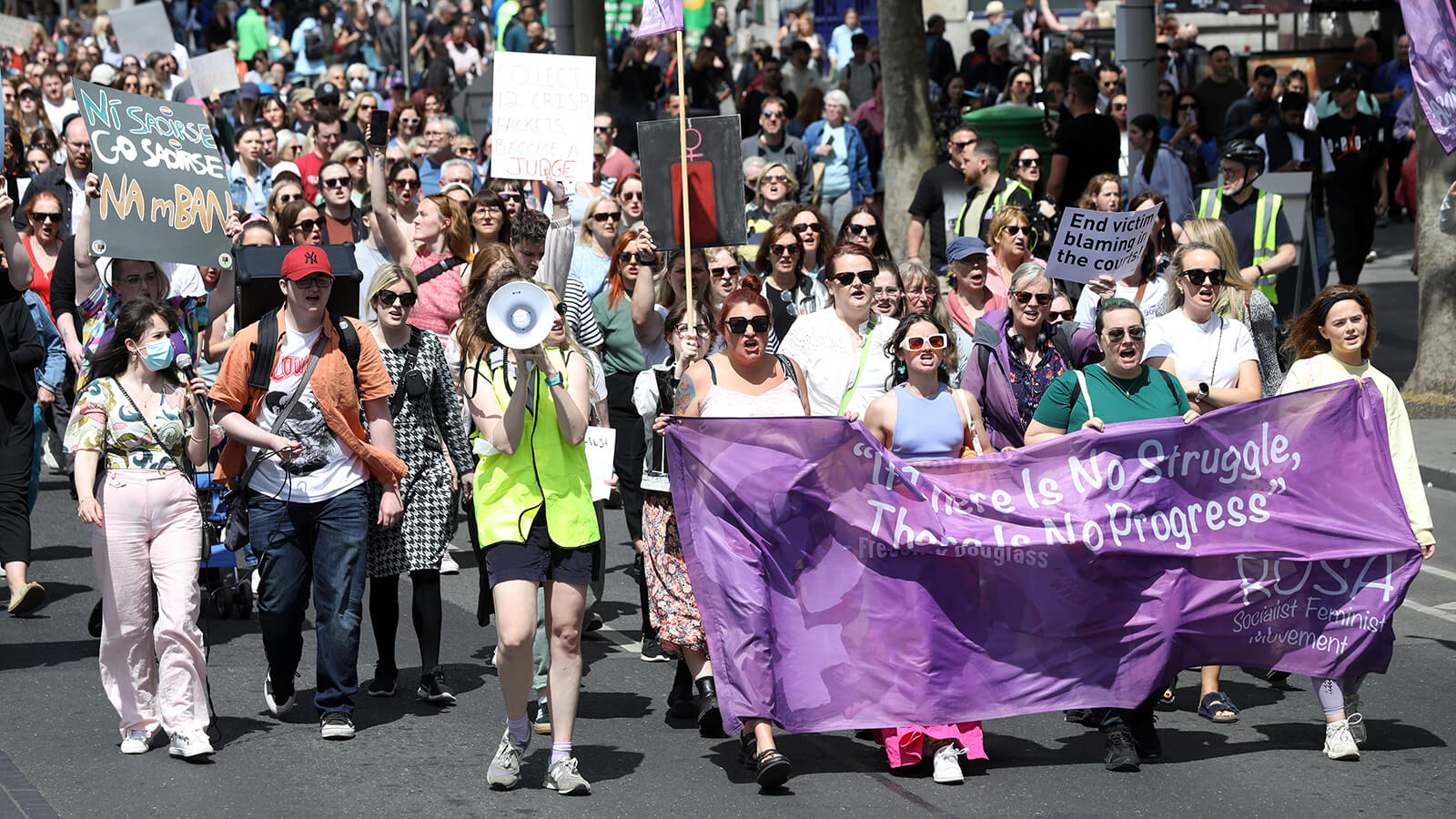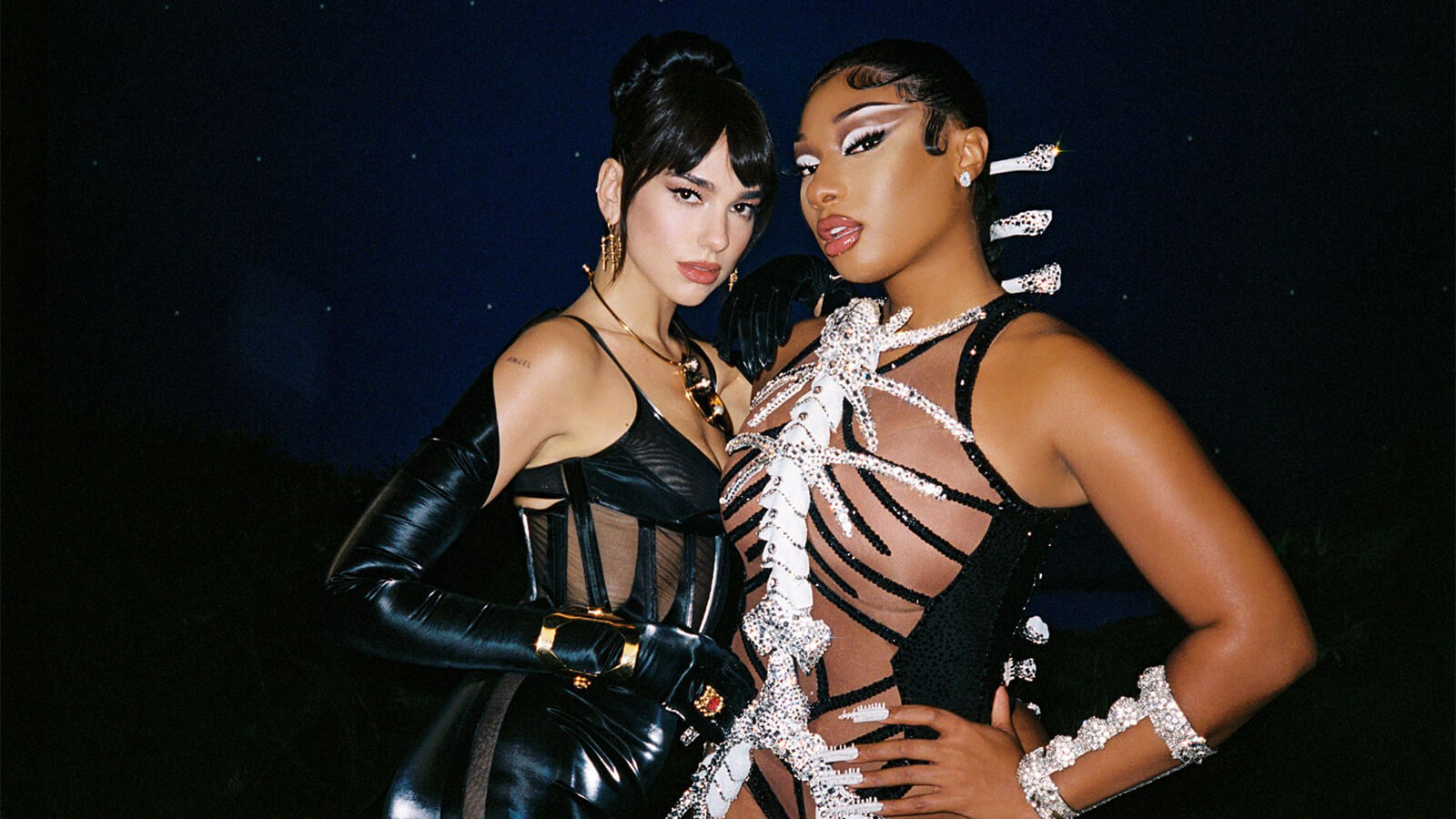Violence Against Women Is Endemic In Ireland – Here’s What Needs To Change
During the 1980s in Ireland, there was fervent debate in feminist circles about which should be granted prominence: the ‘National Question’ – that is, whether Ireland should be partitioned – or the ‘Women’s Question’, which discussed the rights of women across the island of Ireland.
Both debates rumble on to this day in different ways. The National Question is largely encompassed now by discussions on the Border Poll or an Irish Sea Border post-Brexit. The ‘Women’s Question’, much like in the ’80s, is still concerned with violence against women and girls. It’s reached a tipping point this summer though, with women in several Irish cities taking to the streets to protest the latest in a long line of oppressions: the suspended sentence handed to an Irish solider for his assault on Natasha O’Brien. Women are asking: why are we still being treated with the distain that we have endured for decades? The answer is this: Ireland has a misogyny problem. And women have had enough.
Natasha O’Brien was punched six times by Cathal Crotty in May 2022. Crotty attacked her on a Limerick street after she reprimanded him for a homophobic remark he made against another person. In a Snapchat message, he later boasted about the assault: ‘Two to put her out, two to put her down.’
In June 2024, Crotty was handed a fully suspended sentence in an Irish court. Effectively, the judge allowed him to walk free so that his career in the Irish Army might be saved – an act that was seen by many as the State’s condonement of his violence. (Following a public backlash, Crotty was later discharged from military service.) Unfortunately, this treatment of women isn’t new; Irish women have been subjected to misogynistic violence for centuries.
Despite the tweeification of our culture through movies such as Irish Wish or P.S. I Love You, Ireland is a country where patriarchal structures – most notably upheld by the Catholic Church in the Republic, and Presbyterianism, Catholicism, and paramilitarism in the North – have engineered an environment built to keep women silenced. This conservativism has roots in every element of life across the island, from the historically restrictive reproductive healthcare north and south of the border to the violent containment of women who fell pregnant outside of wedlock throughout the 18th, 19th and 20th centuries.
Between 1925 and 1961, 796 babies died and were secretly interred in a septic tank within the Bons Secours ‘mother and baby home’ – an institution run by Catholic nuns, in Tuam, County Galway. The process to properly identify all of the victims is currently ongoing. Then there were the Magdalene Laundries, also largely ran by the Catholic church, to house ‘fallen women’. These women were incarcerated and forced to work in laundries as ‘penance’ for breaking any number of societal mores, from being flirtatious or having sex outside of wedlock to being the victim of sexual abuse or rape. An estimated 30,000 women were held in these institutions between the 18th century right up until the mid-1990s. This dark facet of history has been captured in the deeply evocative short novella Small Things Like These by Claire Keegan.
Now, these institutions are closed, government investigations have been conducted and reparation programmes are underway for survivors. Yet the scars remain, and women are still being subjected to violent misogyny across Ireland. This mirrors a rapid rise in online misogyny globally. But the ruling in the Natasha O’Brien assault case was seen as even more worrying evidence that the Irish State’s laws still do not protect women.
Women’s rights campaigner Danielle Roberts, a sustainability and communications co-ordinator for feminist activism community group Reclaim The Agenda, says the only way to break this cycle is increased funding. She cites women’s services which currently receive no government funding – such as the north’s Rape Crisis Service – and those which have suffered statutory funding cuts, such Women’s Aid Northern Ireland.
Reclaim the Agenda is part of the Raise Your Voice project – dedicated to ending sexual harassment and violence in communities across Northern Ireland by encouraging people to speak out. This kind of community-level change is key, Roberts tells me, by “raising awareness of sexual harassment and how people can be active bystanders” to ensure that intervention happens as quickly as possible.
Low levels of reporting is an issue across the island, due to a lack of trust in the courts, and the media and online backlash often faced by victims. This was compounded by the media circus that divided Ireland following the so-called rugby rape trial in Belfast in 2018, in which a former Ireland rugby player was found not guilty of rape while his accuser was subjected to heinously misogynistic treatment – both in court and online. Activists began tweeting #IBelieveHer in response.
Criminal justice and feminist legal theory expert Dr Sophie Doherty believes there’s a need for “radical systemic changes” right across society. One such change she suggests is education, as early intervention is crucial to tackling misogyny before it becomes ingrained. “We are not born with hate, it is something learned through our culture, through people,” she says. “Children and young people should be better educated on respect, sexism, and misogyny and how these play out in the world.”
Treating people with respect and dignity extends to how victim-survivors are treated in the justice system. Through her research, Dr Doherty has found that in some cases victims have felt that the experience of the court systems retraumatised them. “Justice is multi-faceted,” she says, “and more work needs to be done with victim-survivors to understand what justice means to them and how it can be achieved.”
Violence against women and girls across the island of Ireland needs primacy. Roberts details the ever-growing list of reports undertaken – including this one from the Northern Ireland Executive Office aimed at ending gender-based violence – as academics and activists working to ensure these crimes are recorded, and justice properly enacted. But for change to happen, “We need these reports to be seriously considered and the recommendations implemented with proper funding,” Roberts says.
Through both underfunding of resources and cultural misogyny, there is no safety net that completely protects women. Often, there is no recourse for those who enact violence against women. So many crimes go unreported. In other cases, like Natasha O’Brien’s, a lenient sentence allows the perpetrator to walk free. Radical change is needed. Irish people should resist misogyny, homophobia, transphobia, racism, and all forms of hatred where and when it is seen.
Aimée Walsh is a writer and book critic from Belfast. Her debut novel Exile is out now




